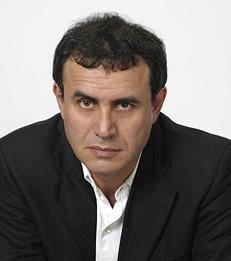Opinion
Why Italy's Presidential Election Matters
—

By Nouriel Roubini
In January 2022, the Italian parliament (together with regional representatives) will cast secret ballots to elect the country’s next president, and its choice will have much wider implications than most people realize. In fact, we have identified the Italian presidential election as one of the three votes that could determine the fate of the European Union in the coming years – the other two being the German federal election held in September and the French presidential and parliamentary elections next April and June, respectively.
It is generally believed that the Italian president performs only a ceremonial role (like the German president). In fact, although the Italian constitution establishes the Republic as a parliamentary democracy – with the government dependent on the confidence of the elected legislature – that system obtains only during periods of relative “tranquility.” When the political system is dominated by well-functioning parties that are capable of securing a solid majority in parliament, the president’s role is relatively marginal. But in “turbulent” periods, when the political system is weak and incapable of delivering viable solutions, the president becomes a deus ex machina.
The two most important tools at the president’s disposal are the power to appoint the prime minister and approve the prime minister’s cabinet; and the power to dissolve parliament after having “heard” the speakers of the two chambers. Moreover, as the signer of virtually all laws and decrees, the Italian president also has the power to send legislation back to parliament. The president also serves as commander in chief of the army and as the head of the governing body of the judiciary.
Read the full Project Syndicate article.
___
Nouriel Roubini is a Professor Emeritus of Economics and International Business and the Robert Stansky Research Faculty Fellow.
It is generally believed that the Italian president performs only a ceremonial role (like the German president). In fact, although the Italian constitution establishes the Republic as a parliamentary democracy – with the government dependent on the confidence of the elected legislature – that system obtains only during periods of relative “tranquility.” When the political system is dominated by well-functioning parties that are capable of securing a solid majority in parliament, the president’s role is relatively marginal. But in “turbulent” periods, when the political system is weak and incapable of delivering viable solutions, the president becomes a deus ex machina.
The two most important tools at the president’s disposal are the power to appoint the prime minister and approve the prime minister’s cabinet; and the power to dissolve parliament after having “heard” the speakers of the two chambers. Moreover, as the signer of virtually all laws and decrees, the Italian president also has the power to send legislation back to parliament. The president also serves as commander in chief of the army and as the head of the governing body of the judiciary.
Read the full Project Syndicate article.
___
Nouriel Roubini is a Professor Emeritus of Economics and International Business and the Robert Stansky Research Faculty Fellow.
